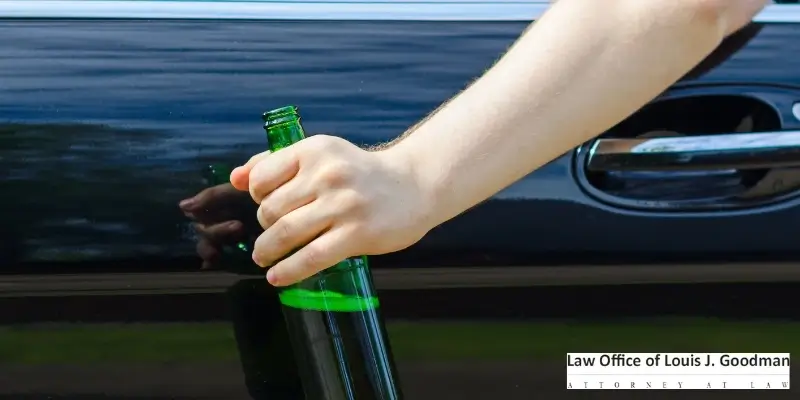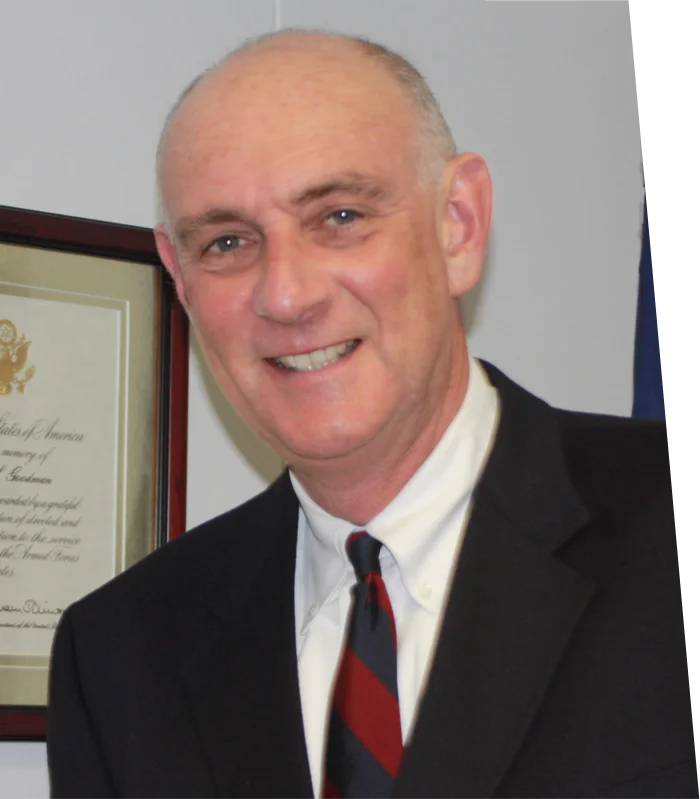Alameda DUI Lawyer
Alameda DUI Attorney
We Help You Handle Your Initial Court Appearance With Confidence
I’ve Been Arrested for DUI … Now What?
After your DUI arrest, there is an initial hearing known as an arraignment. This may be your first interaction with DUI law and can be a very intimidating experience.

At the arraignment, you will have to respond to formal DUI charges with either a guilty or not guilty plea.
An experienced Alameda DUI attorney will outline the legal process and help you feel confident in your plea.
You need to realize that you are starting from a negative position and the consequences can be serious so it is important to have competent DUI or DWI lawyers by your side to give you well-informed legal advice.
The most important part of your arraignment is showing up. But sometimes—maybe due to an emergency—you are unable to make it to your hearing…. so what happens if you don’t show up?
Make Sure You Do Not Miss Your Arraignment Date
In your absence, the courts may issue a “failure to appear” (FTA) order which can result in criminal charges under the California Vehicle Code Section 40508 VC. If convicted, you could face up to six months in jail and pay hefty fines up to $1,000.
A judge may also issue a bench warrant in addition to the criminal charges giving police the right to arrest you.
The moment you miss your hearing, regardless of the circumstances, reach out to an Alameda DUI lawyer who will help you reduce the harshness of the punishment.
If a quick-thinking lawyer can prove that you did not intentionally miss your hearing— either you were in the hospital, in jail, or in active military service—then you may not face penalties for failure to appear.
Act Quickly to Maintain Your Driving Rights
Many people arrested for driving under the influence wrongly assume that they will be prohibited from driving until their trial is over.
The facts are these…
Your license is automatically suspended once you are arrested, but an Alameda DUI lawyer is able to deal with the license suspension. According to DUI law, after arrest, you have 10 days to apply for a DMV hearing to get a temporary driving permit that is valid for 30 days.
This is separate from the DUI case hearing and you will need a competent lawyer to represent you, examine the evidence, and question witnesses to help bolster your criminal defense.
But What Happens After 30 Days? Will I Be Allowed to Drive?
After the 30 days, California DUI offenders are often allowed restricted driving privileges after application at the California DMV office.
According to Senate Bill 1046 eligible individuals with a license suspension can also regain full driving privileges if they install an ignition interlock device (IID).
So What Exactly Is an IID? Do I Have to Install One in My Car?
IIDs are becoming an increasingly popular penalty for California DUI convictions and may be a prerequisite for a restricted driving license.
To keep it simple, it is a breathalyzer connected to your car’s ignition system and analyzes the alcohol content in your breath. Your car will only start after you blow into a mouthpiece, and if your breath is alcohol-free. You will then be asked for breath samples at random intervals and if you do not provide a sample a ‘fail’ report will be logged and sent to the court.
Will I Be Required to Install an IID?
In Alameda, CA, if you are convicted for a DUI and wish to keep driving on a restricted license, you may be ordered to install an IID in every vehicle you own.
You are responsible for the installation costs that can reach up to $150, and average $2.50 per day as well as maintenance and calibration of the device.
The amount of time you are required to keep the device installed will depend on the number of prior DUIs and the nature of your offense.
Let’s summarize this for you quickly:-
It may seem straightforward, but there are different circumstances that a knowledgeable Alameda DUI attorney will help you decipher.
In addition to installing an IID, you will probably need to enroll in a court-ordered program before getting a restricted license.
What are Court Mandated DUI Programs? Will I have to Take One?
Alameda DUI charges often require you to enroll in a DUI education program as part of your sentence, and documented proof is needed before applying for a restricted ticket.
Depending on the type of DUI charge, the costs and duration of these programs will vary depending on the number of DUIs you have had within a 10 year period.
Your attorney will be able to advise you on the best program to choose to fulfill the court’s requirements.
The most common DUI programs for offenses include:
- Wet Reckless DUI Class SB-1176 :
- First DUI Offense: First-time offenses are divided into three categories depending on your blood alcohol concentration;
- Second DUI Offense: If you get a second conviction within 10 years of the prior DUI, you will be considered as a multiple offender.
- Third DUI Offense: A third-time DUI in ten years is a misdemeanor that may require you to complete a 30-month court-approved program.
- Payment of DUI School
These programs don’t come cheap, and you may be unable to afford the fee. But because they are compulsory, in Alameda, state-approved DUI schools cannot refuse to admit you due to lack of funds and you may qualify for a fee waiver.
Most schools allow for payment plans with you that let you to pay a down payment and then pay off the balance during the course of your classes.
SR22 Insurance – What You Need to Know
SR22 insurance is not an insurance policy and is often referred to as a certificate of responsibility (CFR). Simply put, it is proof that you meet your state’s minimum car insurance requirements and refers to the amount of insurance, as well as the duration of coverage.
How Do I Apply For an SR22 Certificate?
After a DUI conviction, you will need to obtain an SR22 form from your insurers and can expect your current insurance provider to investigate the reasons behind it. They will have access to the DMV and have the option of issuing the form and increasing your premiums or canceling your policy altogether.
Once you find a reputable provider, they will provide you with liability coverage and you can then file an SR22 against your policy.
How Much Will SR22 Insurance Cost?
On average, California SR22 forms can cost between $300 and $800. This fee will vary depending on your driving experience, driving history, and place of residence.
The insurer will also look at your age and marital status to determine the level of risk you may be exposed to and you will probably be required to pay premiums significantly higher than those of a standard insurance policy.
You will also forfeit the 20% Good Driver Discount for at least ten years after your most recent DUI conviction.
Additional fees for an SR22 include the filing fee charged by your insurer that could cost between $25 and $50 and the DMV charge of around $125 to reinstate your driving privileges and reissue your driver’s license.
Will I Need SR22 Insurance Forever?
The typical duration of an SR22 is usually three years, but the judge may extend this time, especially if you have multiple DUIs.
Your SR22 form will remain in your file at the DMV as long as you do not cancel the insurance policy.
Will an SR22 Help Me Get My Restricted License?
Definitely. An SR22 certification form is one of the prerequisites of obtaining a restricted license along with proof of insurance.
When you buy a high-risk car insurance policy, make sure the insurance carrier can provide you with an SR22, either electronically or via courier mail.
Where Will I Go For My Trial?
This might seem like a lot to take in and some of this you will have to do in person, and depending on where the offense occurs, DUI cases will most likely be heard in Fremont, Dublin, or Oakland criminal courts.
You will need to prepare yourself to appear in court on time so here are a few details about each court.
Oakland Criminal Court – Wiley W. Manuel Courthouse
Location: The court is located on 661 Washington Street, between 6th and 7th Streets, next to freeway 880 in downtown Oakland.
Dublin Criminal Court – East County Hall of Justice
Location: The court is located at 5151 Gleason Drive between Madigan and Arnold Road in Dublin, across from the Santa Rita jail.
Fremont Criminal Court – Fremont Hall of Justice
Location: The Fremont Hall of Justice is located at 39439 Paseo Padre Parkway near the intersection with Walnut Avenue and Fremont jail.
Meet the Attorney

Louis J. Goodman is a seasoned criminal defense attorney with over 35 years of experience in Alameda County, California. A former Deputy District Attorney, he now provides comprehensive representation for clients facing charges from DUI and domestic violence to federal and white-collar crimes. Recognized for his dedication to constitutional rights, Mr. Goodman ensures every client receives fair and just legal counsel.
Contact Our Alameda DUI Attorney Today
Louis J. Goodman’s experience on both sides of the law as a former prosecutor gives him a unique handle of the law and the ability to see things another DUI lawyer would miss.
Attention to detail is especially important in DUI litigation because even the slightest error in the prosecution’s case is an opening for the defendant and their legal team.
Goodman, as a criminal defense attorney, will explore your case and probe for any mistakes in:
- Breath analysis
- Arrest procedures
- Prosecution
Roadside investigations are not error-proof and police officers often make mistakes and regardless of how small or inconsequential a mistake may seem, it could reduce the severity of penalties, avoid jail time or even be the difference between an acquittal, and a conviction.
A DUI attorney will be able to attend and handle the case largely without you physically being present. During that time, the best attorney will work privately with the judge and prosecutor to negotiate a case dismissal or a sentence reduction.
A DUI case can go to trial where a prosecutor may be more open to brokering a deal to avoid the hassle of a trial case.
Alameda DUI lawyers have a duty to convince jurors that the prosecution has not met its burden of proof meaning they will have to acquit you.
Because jurors are more likely to put more weight on a police officer’s testimony, rather than the criminal defense, we work to create a good impression, with an experienced team of Alameda DUI lawyers that is likable, informed, and professional.
As a former prosecutor, and with 30 years of legal experience in Alameda County, Louis J. Goodman will use his legal expertise to mount a solid criminal defense, giving you a fighting chance against a DUI.
Time is of the essence, so Contact us for a free consultation so we can begin to explore the best way to protect your interests.
DUI Resources
Request A Free Case Evaluation
Fields marked with an * are required
"*" indicates required fields



